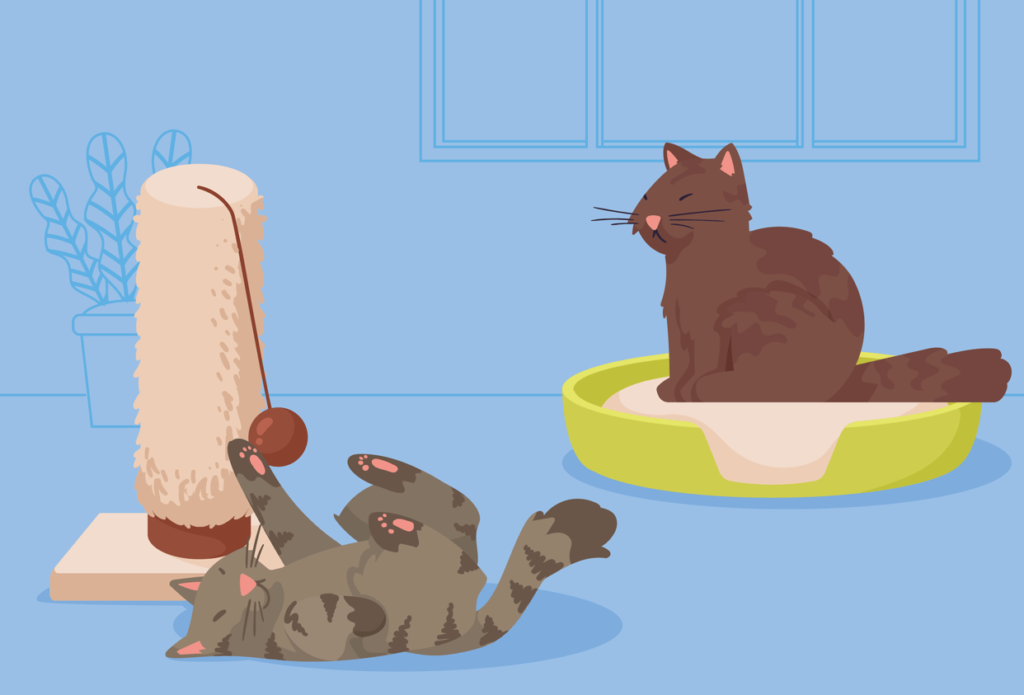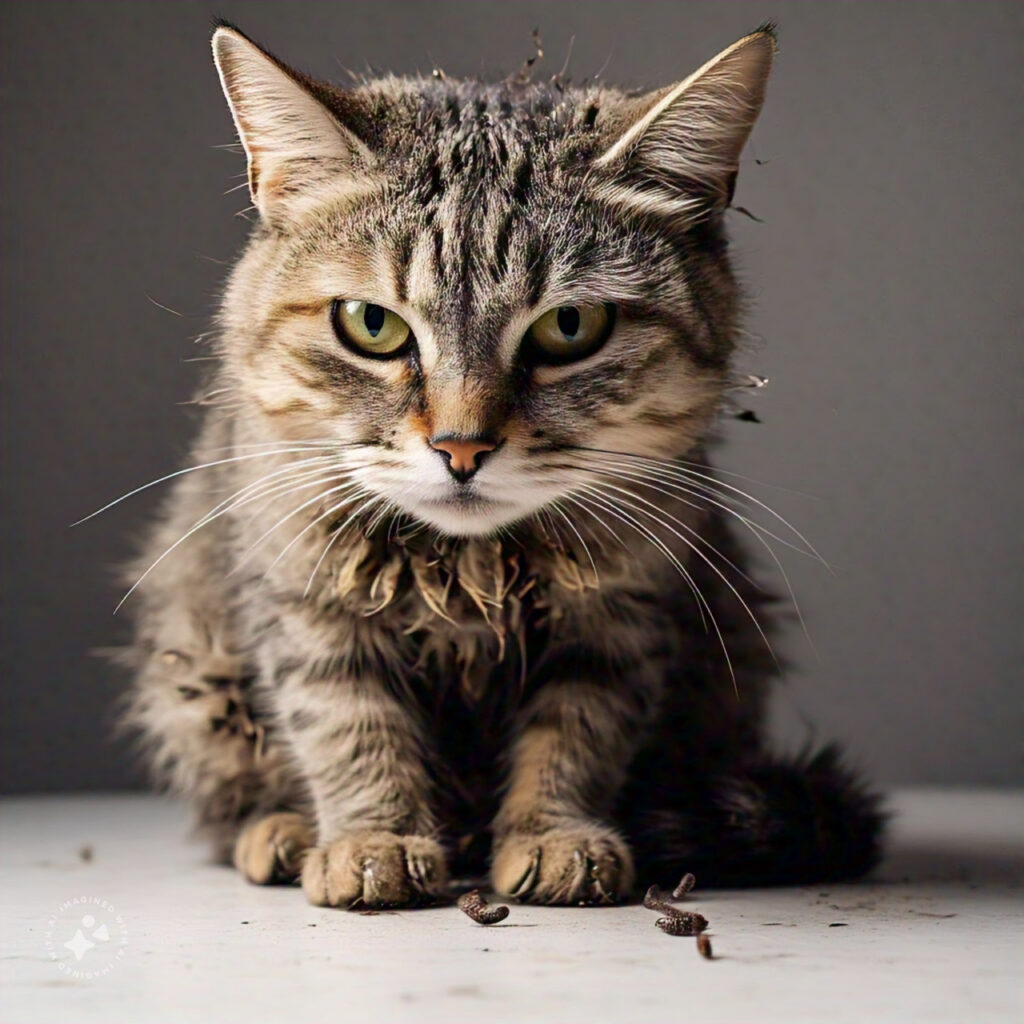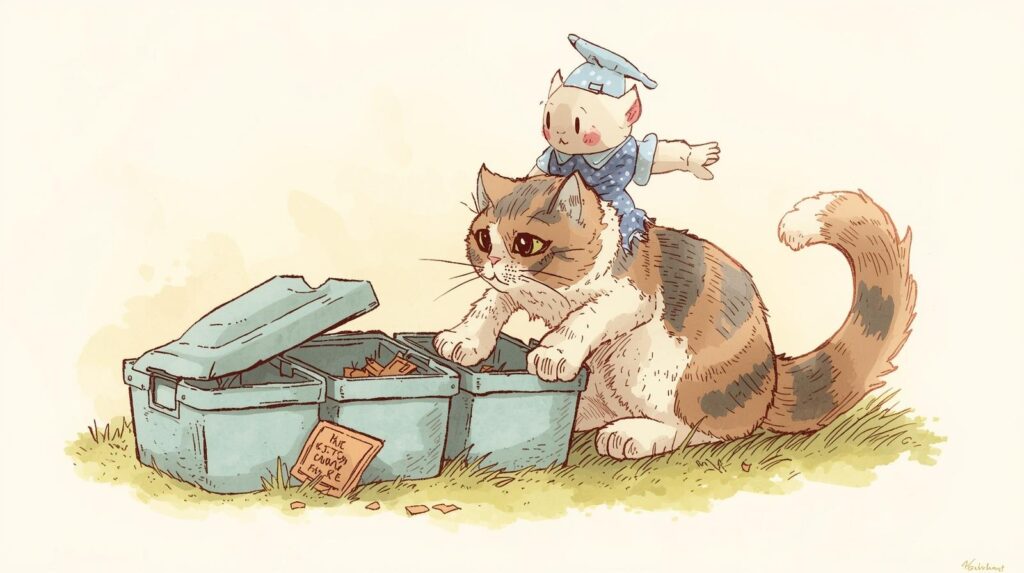Cat Litter Dumping When it comes to cat litter, knowing the proper disposal methods is crucial to avoid breaking the law and protecting the environment. Many cat owners might not realize that dumping litter improperly can cause severe harm to wildlife, contaminate water sources, and even endanger animals or people. In some cases, such as in the UK and US, there are strict laws governing how animal waste like litter should be managed. Depending on where you live, it’s essential to always check local regulations to avoid hefty fines or legalities that could arise from improper practices.

Cat Litter Dumping: Is It Illegal? – The Answer
Dumping cat litter is often illegal due to its health and environmental risks, including spreading the parasite Toxoplasma gondii and polluting water sources. Improper disposal harms wildlife, ecosystems, and human health while risking fines for non-compliance. To avoid these consequences, always dispose of cat litter responsibly using eco-friendly methods to protect communities and the planet.
While it may seem tempting to dump litter outside or flush it down the toilet, these approaches are never a good idea. Flushing can cause plumbing issues, and the waste may lead to water contamination, while outdoor dumping may expose others to health concerns. Instead, consider bagging and binning litter or using an eco-friendly or biodegradable option for disposal. In certain cases, composting in a dedicated compost bin might work, provided your area allows it and the litter is safe for such use. Understanding the dangers and risks associated with improper disposal ensures that you’re not only protecting your own land but also contributing to the good practice of waste management without endangering animals or others.
Table of Contents
Why Is Dumping Cat Litter Illegal?
Dumping cat litter might seem like a harmless act, but it can have far-reaching and harmful impacts on both health and the environment. The presence of the parasite Toxoplasma gondii (T. gondii) in cat stool is a major concern. This parasite can remain active in the environment for years, infecting pregnant women, their unborn children, and those with weakened immune systems. When improperly disposed of, cat litter can contaminate water supplies, polluting waterways with ammonia, waste, and other pollutants. This leads to the spreading smell of infection and disease risks, particularly Toxoplasmosis, which has long-lasting health hazards.
Improper disposal doesn’t just affect human health; it also harms wildlife and farms by introducing disease risks to animals through contaminated water sources. The environmental risks are equally severe; as unregulated dumping contributes to polluting local ecosystems. Most jurisdictions have implemented laws protecting communities from these dangers, but they can be confusing to navigate. Regulations and penalties vary, and non-compliant practices can result in hefty fines. To mitigate these risks, it’s essential to properly dispose of cat litter using eco-friendly methods, which promotes healthier communities and reduces environmental hazards.
By understanding guidelines and adopting responsible waste management practices, individuals can avoid the consequences of illegal disposal. These updates often encourage transitioning to better solutions that protect public health, maintain clean environments, and support sustainable living. Proper disposal is not just about avoiding penalties; it’s about making a positive difference for the community and the planet.
Dumping Cat Litter On Private or Public Land Is Against the Law
Improper disposal of cat litter can lead to significant harm to the environment, making it a big problem in many regions. Dumping litter in the wrong places, such as open land or water bodies, is not only illegal, but it also causes eco-friendly efforts to fail. Wildlife and local ecosystems face damage due to chemicals or bacteria in the litter that can pollute water sources. In the United States and other parts of the globe, improper litter handling is often classified as a serious violation, sometimes even a felony, depending on the area and jurisdiction.
Strict waste management laws exist for a reason. Dumping can cause major impacts on both humans and animals, with costly fines acting as a deterrent. In many jurisdictions, it’s crucial to dispose of litter correctly by using eco-friendly options. For example, compostable bags designed for litter help protect the environment and are worth the time and effort. As an animal lover, I’ve seen firsthand how even a single act of careless dumping can harm the same area for months, making proper litter disposal an act of responsibility.

How to Handle the Problem of Dumped Cat Litter in Your Area
If You Notice Someone Dumping Cat Litter in the UK
In the UK, if you notice someone dumping cat litter, it’s necessary to report this illegal waste activity. You can report it on the government website, and your local council can also help. Agencies like the Environment Agency in England or Natural Resources Wales address issues damaging or polluting the natural environment, so you might want to talk to them for guidance. Taking action against such practices helps protect the environment and prevent harm to wildlife and local communities.
If You Notice Someone Dumping Cat Litter in the US
If you notice pet waste being discarded irresponsibly, it’s essential to take action. Many cities in the United States offer systems like 311, where you can report issues related to dumping. Once a complaint is filed, it is usually directed to the appropriate authorities who handle such concerns.
The response to these reports can vary depending on the location. Some areas prioritize cases involving public spaces like parks or sidewalks, while others focus on incidents affecting private property. To address specific issues in your community, reaching out to local authorities is a reliable step. How complaints are managed depends on the city’s resources and policies.
Consequences of Improper Cat Litter Disposal
Improper disposal of cat litter can have serious repercussions, including hefty fines and legal action. Dumping cat litter improperly not only pollutes water and harms wildlife but also causes long-term environmental damage. Many communities enforce strict waste guidelines, and failing to follow the community’s rules can result in significant penalties. Repeat offenders face hefty consequences, emphasizing the importance of proper disposal methods. To avoid penalties, always adhere to your community’s waste guidelines and responsibly manage cat litter to protect both the environment and public health.
Responsible Cat Litter Disposal: Eco-Friendly Tips for Cat Owners
Properly disposing of cat litter is not just a matter of cleanliness—it’s essential to protect the environment and manage potential health risks. When dealing with cat feces and urine, it’s important to follow specific guidelines to prevent contamination and damage to water supplies. Many people unknowingly harm their plumbing by flushing litter, which can clog pipes and disrupt the water supply. Instead, use a scoop to collect waste and place it in a secure bag before putting it in a designated rubbish bin. Avoid dumping litter into your garden or landfill areas without proper care, as it can spread harmful bacteria like toxoplasmosis.
For those interested in eco-friendly choices, consider switching from traditional clay litter to biodegradable options like wood or paper-based products. These materials are safer for compost when used correctly, especially if you’re an experienced composter. However, introducing litter into a compost pile requires caution. Never use composted cat waste for edible plants to avoid health risks. If you’re a novice composter, start small and focus on expanding your knowledge to ensure your litter disposal methods are environmentally friendly. By adopting these practices, you not only help your feline friend but also protect the planet.
Conclusion
To properly dispose of cat litter, always bag it and discard it in a landfill or designated waste area to avoid harming wildlife and the environment. Flushing or outdoor dumping can spread harmful bacteria, cause environmental damage, and may even lead to legal penalties. Stay informed about local regulations and make responsible choices to protect our planet and health.
FAQ
Is it safe to dump cat litter?
Dispose of cat litter box in biodegradable bags rather than compost bins or flushing, as home composting and municipal systems often can’t handle the pathogens effectively. Avoid using traditional clay litter, as it isn’t biodegradable, and always follow local disposal guidelines.
Can I put cat litter in a general waste bin?
Most cat litter, especially non-recyclable types, should go in the general waste bin, as it cannot be disposed of in recyclable or compostable bins. Some compostable varieties made from natural materials may be added to home compost, but only if uncontaminated. Check with your council for waste collection options, as pet waste is usually unsuitable for garden compost. Always follow local guidelines for safe disposal.
Is it legal to flush cat litter?
Flushing cat litter is not advisable as it can cause blockages, strain public resources, and introduce harmful bacteria into the water supply, endangering both humans and wildlife. Even “flushable” litter can damage plumbing, as I experienced firsthand. To protect your home and the community, it’s best to dispose of cat waste in sealed bags with regular trash.


